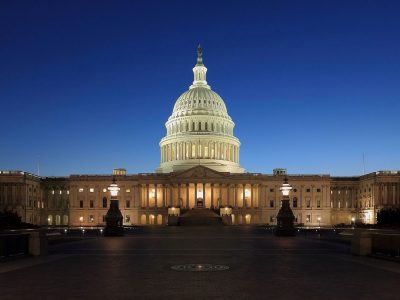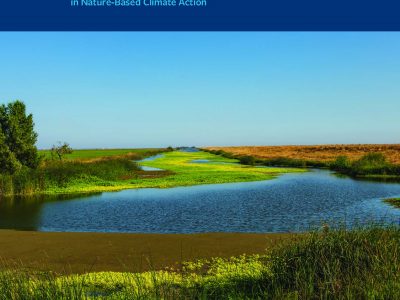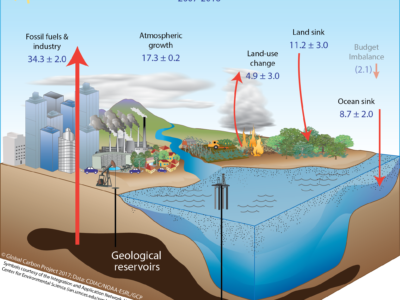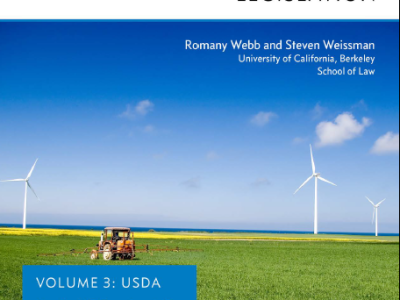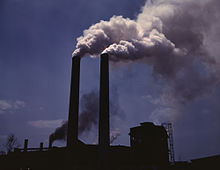carbon sequestration
Climate Rides the Omnibus
The year-end law gives a boost to climate-related spending
The omnibus spending bill is by no means a “climate law.” Because it spans the entire government, though, it has many provisions relating to climate change. They aren’t dramatic step forward. But the fact that they can pass as part of a bipartisan spending law is a sign of how climate change is slowly becoming …
Continue reading “Climate Rides the Omnibus”
CONTINUE READINGNature As A Carbon Sequestration Solution
New CLEE/Emmett Institute report analyzes policy solutions to accelerate investment
New UC Berkeley/UCLA Law report discusses policy solutions to accelerate investment in nature-based climate solutions in California. Register for a free webinar on Wednesday, June 16 from 10:00 AM to 11:00 AM Pacific Time with an expert panel to learn about the top findings. This post is co-authored by Katie Segal and Ted Lamm. Some …
Continue reading “Nature As A Carbon Sequestration Solution”
CONTINUE READINGAmerican Soil
Soil is an important carbon sink. It’s literally going down the drain, eroding away.
Today is Earth Day. Let’s talk about something earthy: the dirt under our feet. When I was a kid growing up in central Illinois, the topsoil was black and went down about a foot. When I was a little older and tried gardening, I was amazed at the fertility of the soil. When I’ve gone …
Continue reading “American Soil”
CONTINUE READINGIn Defense of Live Carbon
Why Stopping Deforestation May be the Hardest and Most Important Part of the Climate Change Challenge
When contemplating the enormous challenge of global climate change, it is sometimes helpful to think about a simple model of the global carbon budget (see figure below). These admittedly reductionist schematics distinguish between sources, sinks, and reservoirs. Fossil hydrocarbons from the geological reservoir–call this dead carbon—are extracted and burned to generate energy, emitting vast amounts …
Continue reading “In Defense of Live Carbon”
CONTINUE READINGSaved By The…Air Conditioner?
New Paper Proposes Carbon Sequestration From HVAC Systems
You have to like the idea carbon sequestration: if our ability to stop putting carbon into the atmosphere is limited, why not try taking it out? But it always seems to founder on a life-cycle analysis: it costs so much in energy to get the system working that you wind up producing more carbon than you …
Continue reading “Saved By The…Air Conditioner?”
CONTINUE READINGGuest Blogger Ken Alex: Reducing Emissions is Not Enough
Post #8 in a Series on California Climate Policy by Ken Alex, Senior Policy Advisor to Gov. Jerry Brown
[This is the eighth post in a series expressing my view of why California’s actions on climate change are so important and how they will change the world. The introductory post provides an overview and some general context.] Under the Paris Agreement, countries agreed to hold the increase in the global average temperature to “well below 2°C …
Continue reading “Guest Blogger Ken Alex: Reducing Emissions is Not Enough”
CONTINUE READINGGuest Blogger Ken Alex: Working and Natural Lands, From Sources to Sinks
Post #6 in a Series on California Climate Policy by Ken Alex, Senior Policy Advisor to Gov. Jerry Brown
[This is the sixth post in a series expressing my view of why California’s actions on climate change are so important and how they will change the world. The introductory post provides an overview and some general context.] Roughly 80% of California land is protected or agricultural. That includes deserts, forests, wetlands, foothills, and multiple vegetative types, …
Continue reading “Guest Blogger Ken Alex: Working and Natural Lands, From Sources to Sinks”
CONTINUE READINGU.S. Agricultural Policy, Climate Change, and Existing Legal Authority
New research from Berkeley Law finds that the U.S. Department of Agriculture can act now to reduce greenhouse gas emissions
The U.S. Department of Agriculture (USDA) is much in the news these days, as it implements the massive and always-controversial farm bill, works to improve access to national forests, strives to enhance the U.S. position in international agriculture markets, and wrestles to contain this season’s extensive wildfire activity. What is less obvious to many is …
Continue reading “U.S. Agricultural Policy, Climate Change, and Existing Legal Authority”
CONTINUE READINGThe Significance of EPA’s Proposed Power Plant Standards
Although they won’t have immediate impacts, EPA’s proposed rules for new coal plants will indirectly help shape the future of the industry.
There’s an uproar over EPA’s proposed rules for CO2 emissions from new coal plants, even though no one expects anyone to build a new coal plant for at least a decade. I’ve argued (here and here) that the industry won’t have standing to challenge the rules because they won’t have any imminent impact. In fact, …
Continue reading “The Significance of EPA’s Proposed Power Plant Standards”
CONTINUE READINGAmerica’s Energy Future: A New Report
The National Research Council has released a new report (available for purchase here) on America’s energy future. Here are some key take away points: Use of existing energy-efficiency technologies is the nearest-term and lowest-cost option for moderating our nation’s demand for energy, especially over the next decade. The potential energy savings available from theaccelerated deployment …
Continue reading “America’s Energy Future: A New Report”
CONTINUE READING



